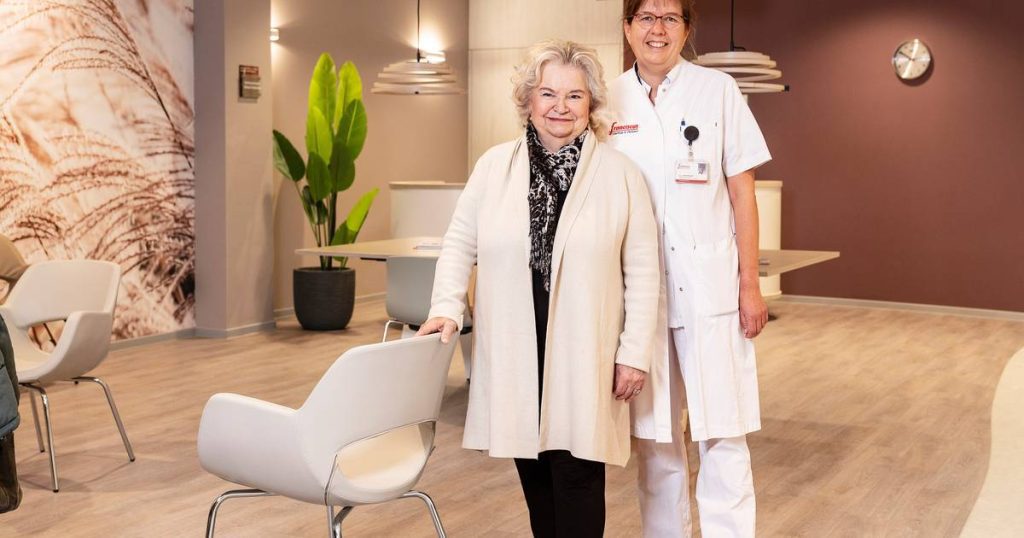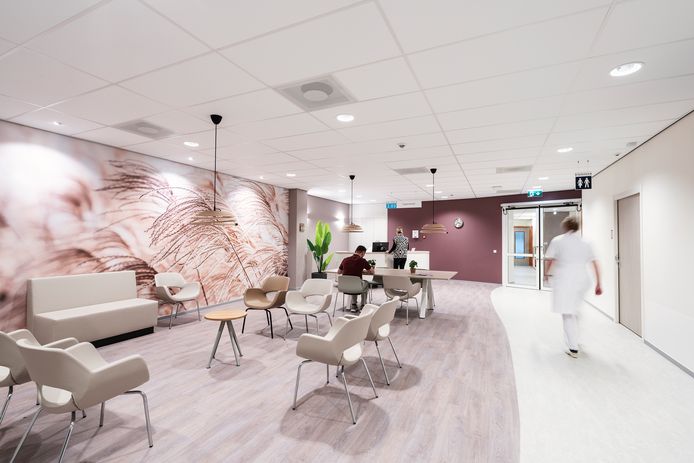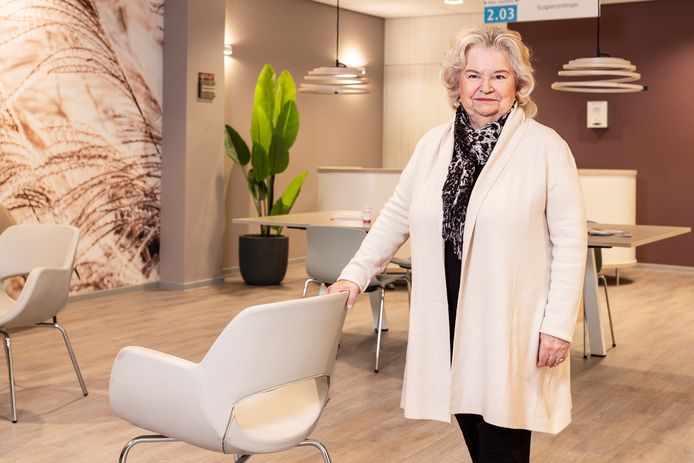Franciscus Gasthuis and VlietlandScopie scans aren’t fun for anyone. Many patients feel stressed and afraid of treatment. This is why Franciscus Gasthaus and Vlietland consider it important to treat patients in a relaxed atmosphere. It takes place in Franciscus Vlietland’s brand-new Scopiecentrum (Schiedam), where hospitality and relaxation are key.
Endoscopy literally means “looking inside”. This is done using an endoscope, which is a thin flexible tube with a very small camera built into the end. The speculum is usually passed through the anus or through the mouth into the digestive tract. For example, the doctor examines the large intestine. If abnormalities are seen, some tissue may be taken for further examination.
Quiet environment for the patient
Ivonne Leeuwenburgh specializes in gastroenterology and hepatology and examines patients at the brand-new Scopiecentrum in Schiedam. Dr. Leuenberg: “A lot of patients get nervous when they come here and dread the treatment. That’s why we set up the Scopie Center in a way that makes people feel more comfortable.” The center looks calm because of the soft colors inside. There are also mood lighting along the walls, giving the waiting room a homely feel. There is a special light in the treatment rooms with special features. The light can be set to have a calming effect on patients, but at the same time the color ensures that the doctor can see more during the examination.
Everything in one place
in range center There are five spacious treatment rooms equipped with state-of-the-art equipment and latest technology. There is also a recovery room where patients can relax after the examination. Since all care is in one place, treatment is more convenient for patients. From reception to sleep, you will feel the same peace and atmosphere everywhere. Dr. Leuenberg: “In the new Scopiecentrum, we do everything in one place. That means we also deploy specialist nurses to prepare patients for examination and who focus on aftercare.”
Colon cancer screening
Francis plays an important role in Population screening for colorectal cancer. Every adult in the Netherlands over the age of 55 receives an invitation every two years to take part in the study. If the result is abnormal, the person is referred to a hospital close to home with the shortest waiting time. All of the research Francis is now doing takes place at the new Scopie Center. Dr. Leuenberg: ‘Thanks to national population screening, we now often detect bowel cancer much earlier. Sometimes we can also treat colon cancer laparoscopically and surgery is no longer necessary. By studying populations, we really save lives.”
One of the first patients
I looked at him like a mountain. But once the viewing test ended in the esophagus, relief prevailed. Mrs. Vermeulen was one of the first patients to come to the new Skopje centre. “I have GERD a lot, especially at night. Then the acidity goes up in my esophagus. I was also very scared because of the increased risk of esophageal cancer. Read her full story here.
Listen to the “Generational Care” podcast.
In order to pass on care to future generations, Franciscus renovated concepts of care, medical equipment, and sites. Site Renovation Director Bert-Jan Greevenk gives you a look at the new construction plans for the hospital in our Generational Care podcast. One thing is certain: only together can you achieve the best result for both the patient and the employee. Watch the episode below or Listen to it on Spotify.
Unlimited free access to Showbytes? Which can!
Log in or create an account and never miss a thing from the stars.

“Total coffee specialist. Hardcore reader. Incurable music scholar. Web guru. Freelance troublemaker. Problem solver. Travel trailblazer.”










More Stories
GALA lacks a chapter on e-health
Weird beer can taste really good.
Planets contain much more water than previously thought